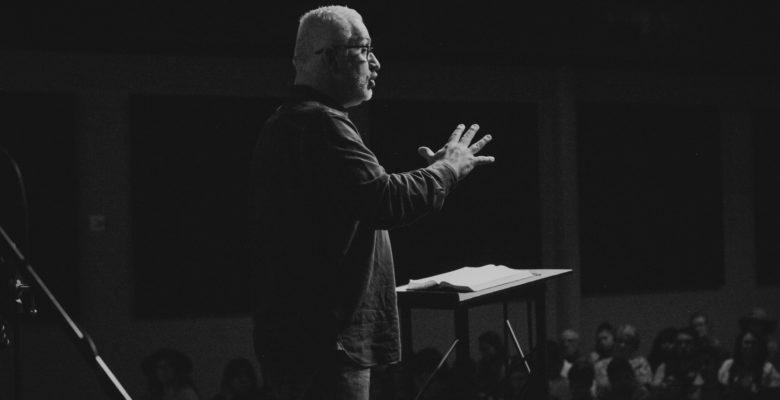Lay preachers are uniquely dedicated to preaching—clear enough about their calling to step out of the expected lane of lay ministry, in many cases doing the time-consuming work of preaching on top of regular secular jobs. They do so without many structures for recognition, collegiality, ongoing training, or spiritual support.
For the past few years, Virginia Seminary has offered Deep Calls to Deep, a program intended to strengthen preachers as they proclaim the gospel. The program does not focus on craft or technique but rather on passion, working to deepen preachers’ connection with the Holy Spirit. In the last year, we have opened Deep Calls to Deep to lay preachers. It is clear that the four emphases of the program apply to lay preachers.
Spirituality: Feeding Your Soul
Deep Calls to Deep aims to replenish preachers through times for prayer, worship, reflection, and contemplation. That work truly begins with an honest assessment of how depleted a preacher is in those areas. Rather than evaluating sermons, ask deeper questions.
- What’s it like when you pray?
- How is God nourishing you?
- How is your work preaching helping your spiritual growth, and how is it getting in the way?
Imagination: Expanding Your Mind
Power in preaching is generated, in part, from a powerful imagination. Compelling sermons draw on a rich storehouse of images, ideas, and language. Again, the evaluation of sermons begins not with the text itself, but with the raw materials in the preacher’s mind and heart.
- Have you been reading—and not just deeply, but broadly?
- Have you been watching movies, encountering poetry, looking at paintings, listening to music, discovering all the ways in which the message of salvation is made incarnate in this world?
- Have you set yourself up to be surprised and delighted by casting a wide net?
Lay preachers have an advantage over parish clergy here: their feet are planted in the same wide world as the people who sit in the pews.
Embodiment: Exploring Your Presence
We tend to think of preaching as an intellectual activity, something that happens from the mouth upward. But take a look down at the entire body that the preacher inhabits.
- When you think about my preaching, do you attend not only to the words I say but also the embodiment of those words in voice, in posture, in gaze? If embodiment is a part of the sermon, it might also be a part of sermon preparation.
- Do you read the scriptures aloud, as a congregation hears them?
- Do you prepare all of your sermons sitting at a computer, or are there other ways?
Community: Building Relationships
Preaching is by definition interactive. It is ironic that the preparation for and evaluation of preaching are so often done in isolation. Deep Calls to Deep aims to foster communal understanding of preaching. The health of the preacher, then, is dependent on how connected that preacher is. And lay preachers are all the more prone to isolation, because there are relatively few of them.
- Ask a lay preacher: Who are your peers?
- Are there people who will not just listen to sermons for you, but who will listen for sermons with you?
The Rev. Anne Turner is Program Coordinator for Deep Calls to Deep, a Lilly-funded program at VTS to nurture preachers. She has served in Episcopal parishes in Virginia for 18 years.

